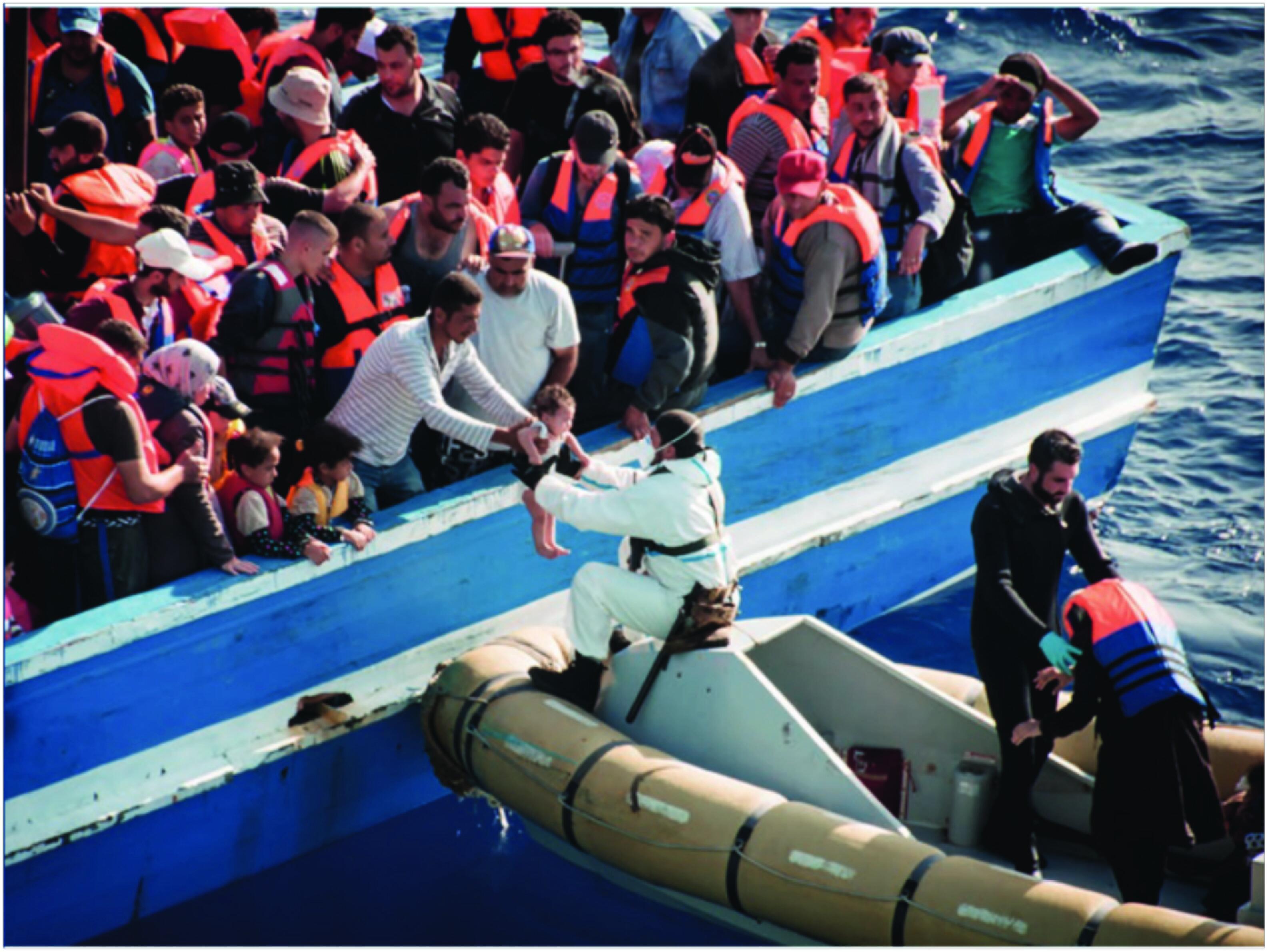Security
-
Piracy requires maintained vigilance
Hijackings and attacks are any shipowner’s worst nightmare, given the threat to crew safety. Seafarers may be killed or held hostage for months in miserable conditions. The shipping industry goes to great lengths in its endeavours to prevent hijackings, by means of protective measures on vessels (alarm systems, cameras, barbed wire and private security guards), and through crew training.
However, beyond shipping, piracy also affects international trade as a whole. Major sea lanes are under threat at a cost of billions of euros to the world economy. Piracy is an age-old phenomenon, rearing its ugly head in areas, like parts of Africa’s western and eastern shores, suffering from weak governance and high economic and political instability. Local coast guards – if they exist at all – are poorly equipped and trained and they are consequently in no shape to adequately patrol their area of responsibility. This explains the need for private security guards on Belgian-flagged vessels to ensure crew safety.
Cyber security, a continuous “catching-up” task
Cyber risk management is one of the shipping industry’s main challenges, as technology (IT) and Operating Technology (OT) systems onboard ships are used for a multitude of purposes, such as controlling engines and associated systems, cargo management, electronic sea charts, navigational equipment, administration, etc. Not only does it ensure the security and the safety of vessels, but it also protects the marine environment. Their use has traditionally been assumed safe and secure whilst not interconnected on board and also not linked digitally to ashore. Digitalisation of communication, integration and networking of shipboard equipment has, however, exposed ships to cyber risks and cyber attacks.
That’s why the vulnerabilities arising from the connectivity of such systems create cyber risks which need to be addressed. Not only the risk of malicious attacks to ships but also risks occurring from seafarers having access to the systems on board ship, for example by introducing malware via removable media. With the evolution to unmanned vessels the importance of suitable protection is bound to increase. Indeed, the ecological, commercial and security consequences of a cyber incident would be incalculable.
To help shipping industry players develop resilient approaches to cyber security, IMO approved guidelines on maritime cyber risk management. These ‘high level’ recommendations do not enumerate all possible cyber risks, but they do state that proper cyber risk management takes into account all risks, with the awareness that such risks are forever changing. In short, to achieve an effective cyber risk management, corporate culture should include an awareness of cyber risks at all levels. Cyber policy and risk management procedures are organisation-specific and they need permanent evaluation and evolution. Cyber security threats are dynamic in nature and protection against threats is a continuous “catching-up” task. Regulations tend to be static and the nature of a regulatory process renders the result somewhat outdated when adopted. That is the reason why there is no value in developing specific regulations to address this issue. However, international legislation at IMO level is to be preferred over local legislation.
Merchant shipping is still a part of the solution to the rescue of migrants at sea
In recent years merchant shipping has rescued thousands of refugees at sea in the Mediterranean. The shipping industry therefore does not question the humanitarian imperative to help people and ship in need of assistance. However we see that people traffickers abuse the law of the sea, putting thousands of lives in jeopardy. Therefore the humanitarian crisis is not only a problem for the international community, but it is also very much an issue for the shipping industry.
Europe’s current management of the refugee influx falls short of existing needs. Europe should discourage refugees to embark on the sea crossing in the first place. Additionally the organized crime gangs behind such practices should be traced and dealt with. Merchant vessels picking up refugees should be allowed to disembark them in any European port, exactly as provided for under the International Convention for the Safety of Life at Sea (SOLAS). It is extremely important for the shipping industry that the coastal States of the Mediterranean guarantee the implementation of such measures.
In response to this large number of migrants the shipping industry published a guidance on ensuring the safety and security of seafarers and rescued persons. This Guidance is intended to help shipping companies identify and address particular issues that their ships may face when required to conduct a large scale rescue. In particular, matters of primary importance are identified that might be considered when developing ship specific plans and procedures, including the needs of those being rescued and the safety of the ship’s own crew.


-
-
Stay informed
-
Sign up for our press release news
-







